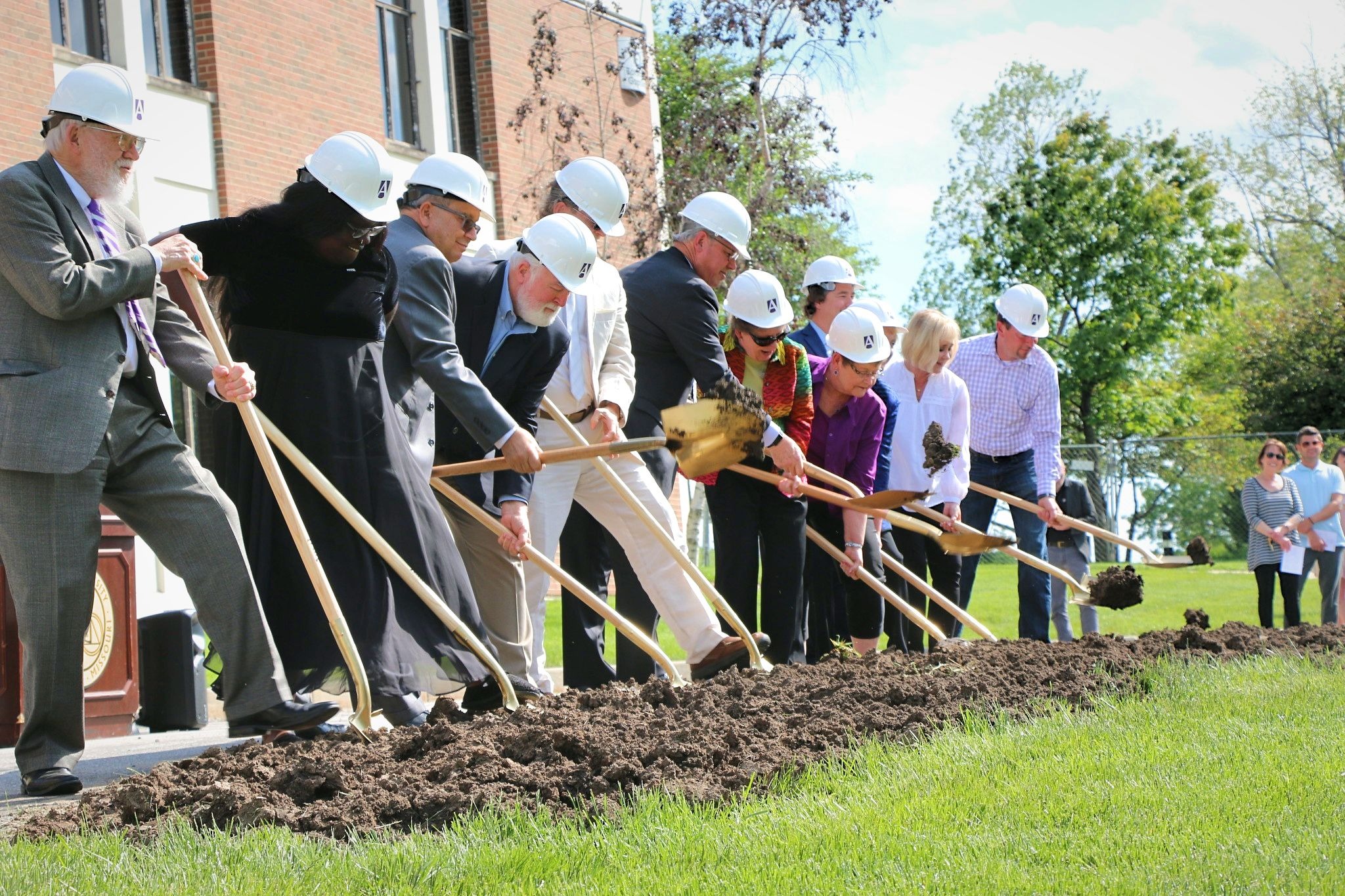Marlon Jones was an Avila STEM Scholar and graduated class of 2021 with a bachelor’s in Biochemistry, and a minor in environmental science.
“I work for Trinity Biotech, a production company for HPLC (High-Performance Liquid Chromatography) instruments and point-of-care devices. I fell in love with both sciences [chemistry and biology] and merged the two,” said Jones.
Why did you choose Avila?
One thing that stood out for me was that my mom graduated from Avila, and I saw that there was a cohort program for STEM students. Not many colleges that I looked at had anything similar to that. It felt like there was a space for me before I even arrived. It was pretty nice.
Did you make any notable connections with the faculty?
Dr. Burgess (Katie Burgess, associate professor) was one of my advisors. I got to see her more as a friend and a mentor because I made it out of Avila without having one class with her. She always made it very comfortable for me to come and ask questions, even if they were the most off-the-wall things.
I ended up doing my research project with Dr. Gastreich (Karin Gastreich, chair of the school of natural and applied sciences). We worked with Ceratina bees in Jerry Smith Park. It was nice. That pushed me to want to go into conservation work and environmental work. I’ve been trying to build up experience to work for the EPA eventually.
What are some things you gained while at Avila?
The community [at Avila] is so caring. It’s so small that everyone can get these personal interactions with the professors where it isn’t forced or rushed. It’s nice to have that and feel comfortable with your professors.
Time management was such a big thing when I was there. That helped me and has carried over into my career path. Even in my current job now, because I work in a QC [quality control] department at Trinity, time management is very detrimental to things we test. It’s good to feel comfortable delegating and prioritizing my time and tasks.
I also gained more social skills. I feel more comfortable talking in front of/to people. I’m still friends with several cohort members, even though we’re all dispersed across the country now.
Were you involved in any campus communities?
I went to BSU, Black Student Union. In my sophomore year, I got into photography. I was the campus photographer for the school magazine Talon. It was nice getting to know all the football players and taking pictures on the field. It also opened up a part-time job because I still do photography.
Amity Bryson (professor of music) heard me and my roommate Garland singing, and she asked if I wanted to be in the choir. I said, “Well, I’m doing a lot of things right now, so probably not.” It was nice to know that I could’ve tackled that if I wanted to. There were a lot of crossovers, which is nice. I think that helps with finding yourself as a person, too.
Did you build any other connections on campus?
I was not looking for many connections. I’m friendly, but it takes a while for me to warm up. Those little study sessions when we were up late all night were the moments that built the foundation for lifelong relationships. You will build connections and make friends.
Avila brings a strong sense of community and diversity. They know how to keep all the people together. They know how to keep people interacting with one another. Because our campus is so small, you will see your professor walking across the quad.
Of course, you’re going to say hello because I saw you 15 minutes ago in your class. There is a strong sense of community and belonging. There’s something for everyone there. I don’t think you would find that in many other Catholic or religion-based schools with that amount of inclusiveness and diversity.
What’s something Avila instills in each person?
Teaching us that we’re not on our own and that we can lean on each other if we need to and then pop back up and be there to help someone else if they fall. It’s nice.
It transcends all the students. They have to know it, like me, a STEM student going out for lunch with a choir student, out with a dance major, or having a good time with the football kids and being able to say I know them personally. Then when we all graduate, if you want to call up or you need something, you know who to call because we went to school together, and you don’t feel bad about it because it’s something you were accustomed to when you were in school together.
How would you describe the Avila experience?
Avila included you, made you feel seen, and didn’t allow you to fall to the back of the class and just sit there.
I quickly realized how engaging and active Avila is in ensuring that everyone has a chance to feel seen, heard, and recognized. I would say to someone who doesn’t know what college is or doesn’t have any experience with college that Avila can change that.
Avila can make you see that being a part of something bigger than yourself and simultaneously chasing a goal for yourself is way more attainable than you might think. You feel at home. That might scare some people away. It’s not always going to be bright and sunny days. Sometimes it’s going to get worse before it gets better. Some of those exams were hard, and you get into a funk.
Once you make those connections with your friends and your teachers, they notice that. They will ask, “Do you want to go grab a bite to eat, or do you want to stay after class? I can help you with this.” Most of the time, you don’t even have to say anything. You can accept the help and the love and keep on going forward. Yes, it’s an environment built for you to succeed. That’s what it is.
Could you share something you experienced at Avila that impacted your future?
My three years at Avila were probably the most character-building, defining parts of my life. I don’t say that lightly. I was broken down and rebuilt into so many different versions of myself, and I learned who I am as a person and what I want.
You see your professors’ lifestyle. They come to work happily with smiles on their faces. They’re never really grumpy or anything like that. They may give you a hard time for turning in something late, but that’s what teachers do. They never come unwilling to help. You see that, and you know, “Maybe I want that for myself.” It’s easier to chase your dreams when you’re at school. I appreciate Avila for that.

